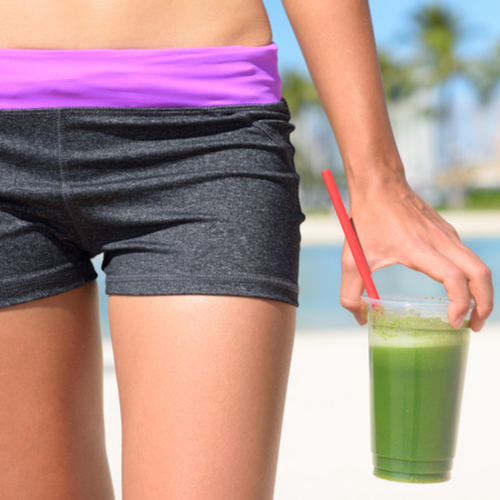
Trisko tells us that juice cleanses can deprive your body of necessary nutrients.
"If you're exclusively juicing for a cleanse, you're depriving your body and digestive tract of one of the healthiest things we can consume for our guts--fiber," she says. "Typical juicing removes the pulp, or fiber, leaving only the liquid, which is mostly water, vitamins, and minerals. By drinking only the juice, you're actually missing out on one of the best parts of fruits and vegetables."
Although a short-term cleanse will likely not have a lasting impact on your health, committing to a longer cleanse might.
Trisko explains, "Doing a juice cleanse for only a few days won't impact your body significantly in a negative way, but they can be harmful if followed for a long period of time due to the very low calorie content and lack of essential nutrients like protein and fats."
In fact, doing so just might hurt (rather than boost) your metabolism. She adds, "Consuming less than ~1200 calories a day for a long period of time can negatively impact your metabolism."
"Not to mention, repetitive participation in more extreme diets like juice cleanses could potentially spiral into other disordered eating behaviors," Trisko continues.
Plus, the so-called 'weight loss results' are unlikely to last. Trisko tells SheFinds that although most people who strictly follow a juice cleanse will initially see a bit of weight loss, it won't last. Instead, they'll be dropping water weight, not losing any fat.
She adds, "Chances are, once they resume their regular routine, that weight will come back after a week or two."
With that in mind, if you actually do want to achieve a weight loss goal, steer clear of any diet trend that seems too good to be true.
Instead, Trisko encourages clients to start by "developing solid nutrition habits (including hydrating properly and consuming plenty of whole vegetables and fruits)." In addition, "focusing on stress management and getting quality sleep" can help you start to feel and look better.


